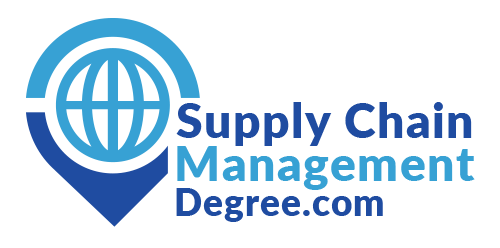
Navigating the Digital Landscape: Evaluating Software Tools for Supply Chain Management Education
In the dynamic realm of supply chain management (SCM), staying abreast of technological advancements is crucial for future professionals. Software tools have become indispensable for optimizing supply chain operations, enhancing efficiency, and driving innovation. In this blog post, we’ll explore the importance of evaluating software tools for supply chain management education and discuss key considerations when selecting the right tools to prepare students for success in the digital age.
The Role of Software Tools in Supply Chain Management Education
Software tools play a pivotal role in modern supply chain management education, offering students hands-on experience with industry-leading technologies. These tools enable students to analyze data, simulate supply chain scenarios, optimize processes, and gain practical insights into real-world challenges. By integrating software tools into the curriculum, educational institutions can provide students with the skills and competencies needed to excel in today’s digital supply chain landscape.
Key Considerations When Evaluating Software Tools
Alignment with Industry Standards: When selecting software tools for SCM education, it’s essential to choose platforms that align with industry standards and practices. Look for tools that are widely used in the industry and offer functionalities relevant to key SCM processes such as demand planning, inventory management, logistics, and procurement.
User-Friendly Interface: Software tools should have an intuitive user interface that is easy to navigate, especially for students who may have varying levels of technical proficiency. Look for tools that offer user-friendly features, clear documentation, and tutorials to support student learning.
Scalability and Flexibility: Choose software tools that are scalable and adaptable to different supply chain scenarios and complexities. Look for platforms that can accommodate both small-scale exercises and large-scale simulations, allowing students to explore various supply chain configurations and challenges.
Integration Capabilities: Evaluate software tools that offer integration capabilities with other systems and technologies commonly used in the industry, such as ERP systems, warehouse management systems (WMS), and transportation management systems (TMS). Integration capabilities allow students to simulate end-to-end supply chain processes and gain a holistic understanding of SCM operations.
Industry Partnerships and Support: Consider software tools offered by vendors with strong industry partnerships and support networks. These vendors can provide access to training resources, industry certifications, and networking opportunities that enhance students’ learning experiences and career prospects.
Examples of Software Tools for SCM Education
SAP Supply Chain Management (SCM): SAP SCM offers a comprehensive suite of software solutions for demand planning, supply chain execution, inventory management, and procurement. It provides students with hands-on experience with industry-leading SCM technologies used by organizations worldwide.
IBM Sterling Supply Chain Suite: IBM Sterling offers a suite of software solutions for supply chain visibility, order management, transportation management, and blockchain-enabled supply chain traceability. It allows students to explore cutting-edge technologies and emerging trends in supply chain management.
Oracle SCM Cloud: Oracle SCM Cloud provides a suite of cloud-based software solutions for supply chain planning, logistics, procurement, and manufacturing. It offers students the opportunity to gain experience with cloud-based SCM technologies and learn about the benefits of cloud computing in supply chain management.
Evaluating software tools for supply chain management education is essential for preparing students to thrive in the digital age. By selecting software tools that align with industry standards, offer user-friendly interfaces, scalability, integration capabilities, and industry support, educational institutions can provide students with the practical skills and hands-on experience needed to excel in today’s dynamic and technology-driven supply chain landscape. As software tools continue to evolve, supply chain management programs must adapt to ensure students are equipped with the latest technologies and best practices to succeed in their careers.


